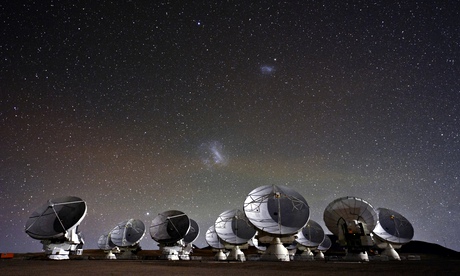
Even now, with the days growing slowly longer, darkness dominates these winter months, especially for those of us who live in relatively rural areas. But for many urban dwellers, true darkness is an almost forgotten condition, usually only experienced as a consequence of war, power failures or the deliberate seeking out of lightless indoor spaces. Our fear of the dark has led us to try and banish it, with the consequence that we have also managed to drive out the beauty of a starlit night from many people’s experience.
It is easy to forget how recent a phenomenon this technological elimination of the dark is. In Thomas Gray’s Elegy Written in a Country Churchyard, when the weary ploughman left the world to darkness and to the poet, it was a darkness the depth and quality of which most of us now can barely imagine. And in the dark, the poet’s mind was free to meditate on fame and mortality undistracted, and enter into a sympathetic understanding of the perpetual darkness that was the lot of his fellow denizens of the graveyard.
Like Gray’s elegy, TS Eliot’s East Coker is also a meditation on mortality, and the great third section of the poem assembles a cast of Londoners straight out of The Waste Land, who find themselves forced by war to enter the darkness of unlit underground stations to escape the nightly air raids. The poem draws on Eliot’s personal experiences as an air raid warden as well as a phrase from Milton’s Samson Agonistes to create an image of death-in-life: “Nobody’s funeral, for there is no one to bury.” Here, darkness is a kind of renunciation, but renunciation as a prelude to salvation.
In her poem Out of Winter, Rosemary Dobson also looks for solace in darkness; the solace of things pared back, as winter strips the earth to its essentials. Like Eliot, Dobson is inspired to patience by the dark. Similarly, for Les Murray, The Dark is an interior condition, a doorway to the inner life. The sense in his poem of the spiritual weight of the dark is virtually the opposite to that which informs Gerard Manley Hopkins’s sonnet I Wake and Feel the Fell of Dark, Not Day. For Hopkins, the dark to which he wakes is symbolic of his alienation from and sense of abandonment by his god.
This use in poetry of the dark as a threshold to the inner life derives, in large part, from the opening lines of Dante’s Inferno in which the narrator’s awareness of being lost in the “selva oscura” (the dark forest) is a necessary precondition for finding his way back to the “diritta via” (the straight road). Caroline Bergvall’s VIA is a collage of 48 versions of Dante’s tercet which takes on something of the nature of a fugue on the theme of being lost in the dark.
Byron’s Darkness was occasioned by the 1816 “year without a summer” caused by the eruption of Mount Tambora in 1815. Many people interpreted it as the end of the world, and the resulting sense of apocalypse was used by Byron to express a pessimism about nature that stands in stark contrast to the pantheism that characterises much Romantic poetry. In this poem, nature is darkness, and darkness is unremittingly bad.
Emily Dickinson’s We Grow Accustomed to the Dark, on the other hand, avoids any moral weighting of light and darkness; the latter stands for the unknown, which can either be good or bad, and the poem celebrates our human ability to adjust to uncertainty, despite the bumps and bruises along the way.
This month’s challenge, then, is to write a poem or poems about darkness. You may be inspired to meditate on it, struck by fear of it, or moved by the beauty of it: one way or another, the crucial thing is to get your feelings down in words.

